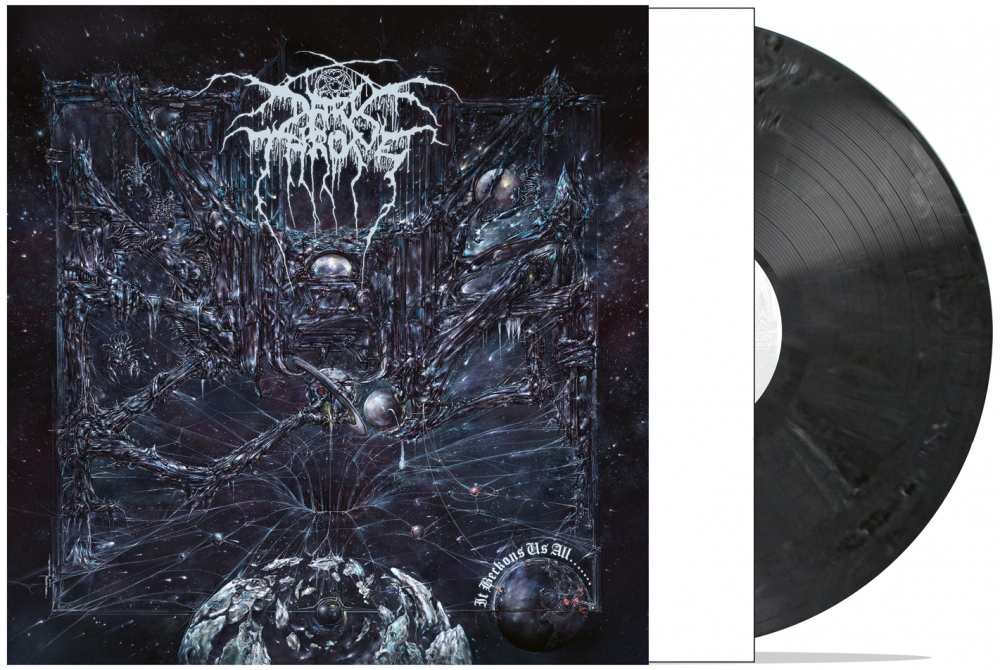‘In Utero’ was, and remains, my favourite Nirvana album. More complex than ‘Bleach’, less shiny than ‘Nevermind’, it still contained the right balance of pop, punk, rock and metal despite its reputation as being a furiously unlistenable blast of raw grunge angst. Some of the band’s most memorable, and most loved, songs call ‘In utero’ home – songs like ‘heart shaped box’, ‘dumb’ and ‘all apologies’ (the latter two of which ended up on ‘unplugged’) and whilst there is plenty of muscular action (the furious riffs of ‘scentless apprentice’, the atonal punk white-out of ‘milk it’), it is always balanced by the pop sensibility that Kurt inherited from a lifetime of listening to the Beatles.
When, therefore, a super-deluxe edition of the album was announced, promising 70 unreleased tracks and heaven knows what else I was excited. It seemed an album ripe for the deluxe treatment; after all, for years there had been rumours of even more extreme mixes of the album (sadly erroneous) and there were plenty of live concerts, demos and obscure tracks to dig out to flesh out the original release: what would be on this reassuringly expensive (average cost is £90 in the UK) box set? The answer, it transpired, was disappointment. The crushing inevitability of record company dictates served to tear the life from this project even before release day simply because Polydor want to have their cake and eat it too. Allow me to explain.
Once upon a time a super-deluxe box set was a rare thing indeed. Reserved, more often than not, for whole album collections, only the most revered single records were mooted (and accepted) for super-deluxe treatment. Examples of a super-deluxe project done right include Jethro Tull’s ‘Aqualung’, King Crimson’s seminal ‘in the court of the Crimson King’ and Pink Floyd’s ‘Dark Side of the moon’. In each case fans were treated to the original album and a whole host of extras ranging from vinyl (Jethro Tull), surround sound mixes (all three), booklets, trinkets (Floyd) and bonus tracks unavailable elsewhere. All three albums could be bought in cheaper, stripped-down versions but in all three cases essential elements were missing – that was fine: the basic fan could get a decent version of a classic album at a sensible price; the super fan could get a super version and feel that they had got something special in exchange for their money. ‘In utero’ does not only ignore this simple premise, it more or less cocks a leg and dribbles urine on the true fan’s shoes. A four disc set, for your money you get the album plus b sides (disc 1), a new version of the album plus demos (disc 2) a live CD that exactly duplicates the DVD (disc 3) and a DVD documenting the MTV ‘live ‘n’ Loud show (disc 4). There is no blu-ray version of the show offered and the only other item you get is a fine, but hardly essential, book of photos. Vinyl, if you want it (and remember this was available with ‘Aqualung’ as standard even though that set cost less), is not included and here’s the sting – everything apart from the live CD is available separately for a quarter of the price. It’s like flying first class only to find that the people in budget have the option to buy all of the in-flight extras that you have received only for considerably less than you paid for your ticket. It is a ghastly, overly-superficial marketing ploy of the worst kind – one that taps into the sentimentality of a generation still scarred by the death of Kurt Cobain and capitalises on that event with no thought or feeling whatsoever. It is a soulless, joyless, vapid effort that does a grave disservice to a musician who stood out exactly against this sort of thing.
The super-deluxe edition, then, is a painfully expensive and largely redundant exercise in profiteering and, unless you happen to have £100 burning a hole in your pocket, should be avoided However, the deluxe edition (covering discs one and two of the set) is a far more viable proposition for both the long-standing fan and the newcomer alike. Despite offering less in the way of exclusivity than you might hope, it still manages to throw up a few surprises and, unlike its vastly more expensive sibling, it does offer value for money.
Disc one sees ‘in utero’ given a pristine re-mastering by Steve Albini himself. The result is an album that sounds crisper and more defined without compromising the chaotic artistic vision of the original album. In truth little sounds significantly different, although ‘scentless apprentice’ now sounds even more oppressively metallic, with Dave’s brutal percussive assault coming through far more clearly than in the past, and vocals now seem to penetrate the sonic murk with greater clarity (this is particularly the case with backing vocals). The album concludes, as it always has in Europe, with the bizarre ‘gallons of rubbing alcohol flow through the strip’, a track previously buried some thirteen minutes after ‘all apologies’ and one that now suffers from being simply another track rather than a hidden oddity for the dedicated to find (or to wake you up with a jolt should you fall asleep listening to the album). It’s really nothing more than a jam, and for the collector who missed out on the track when it was originally released, it has already appeared on the exhaustive ‘with the lights out’ box set. Also on offer are the original b sides to the singles – the haunting ‘Marigold’ and the oddly satisfying ‘moist Vagina’ (originally and coyly titled ‘MV’ in the UK) and a couple of rarities: the oft-bootlegged ‘Sappy’ and the excellent ‘I hate myself and want to die’ (previously released on a Beavis and Butthead compilation CD). You also get the Scott Litt mix of ‘Pennyroyal Tea’ (higher backing vocals, not much else) and the Steve Albini mixes of ‘Heart shaped box’ and ‘all apologies’, neither of which set the world on fire. Most Nirvana fans, between bootlegs, singles and ‘with the lights out’ will have these songs, but it’s nice to have them collected together and disc one does a good job of telling the full story of the ‘In utero’ studio recordings. Two tracks, however, are conspicuous by their absence. ‘Oh the guilt’, a brilliantly scathing track released as a split single with the Jesus Lizard and ‘the priest they called him’, a ten-minute plus noise workout from Kurt backing a spoken word piece from William Burroughs, are both absent from the collection, despite being important period recordings, presumably because the executives either couldn’t (or wouldn’t) deal with the licencing issues. It’s a shame, because the latter recording in particular highlights Kurt’s more avant-garde side and is particularly hard to find.
Disc two is rather more contentious. Offering a 2013 mix of the album, it tinkers with history without really attempting to rewrite it and it seems largely superfluous. A couple of changes do pop out – ‘scentless apprentice’ is even heavier, ‘very ape’ gains some extra feedback at the start – but it is hard to see anyone particularly favouring the new mix over the old, it’s just not different enough to really warrant serious consideration. The rest of the disc comprises early demos, most of which simply serve to highlight the fact that Nirvana wrote songs and then recorded them – signs of evolution are almost wholly absent, with the only key difference being that the majority are instrumental. Two songs that will raise attention are ‘Jam’ and ‘forgotten tune’. At just over two minutes in length, ‘forgotten tune’ is exactly that, the briefest of sketches thrashed out by the band whilst ‘jam’ meanders pleasantly without ever giving the listener the feeling they are hearing forgotten gold from an important recording session. For completists disc two is fine, it fleshes out some gaps on the ‘with the lights out’ box set by providing some long unheard demo tracks, but for the casual fan there’s nothing here to really excite the imagination.
In the final analysis there is no doubt that ‘In utero’ is a pivotal album. A far more realistic assessment of Nirvana’s sonic assault than ‘Nevermind’ it is an album that is arguably less influential in social terms than musical. The casual music fan may know the singles, but the abrasive side of the album is fodder for the faithful, whilst simultaneously disposing of the stadium-goers bewitched by ‘Nevermind’ and its polished catalogue of hits. It is a crucial album in the genesis of grunge, an album that encouraged exploration of the underground scene (how many people discovered Sonic Youth, The Butthole Surfers and Black Flag as a result of Nirvana?) and a testament to the skill of Kurt Cobain. Its expansion, therefore, is largely irrelevant. Nirvana fans, in the knowledge there will never be anything new, will undoubtedly want to add the set to their collection, and it is enjoyable. The deluxe edition (currently around the £13 mark in the UK) is hardly excessive in price and you do get some decent extras, but really ‘In utero’ as it was released in 1993 was the first, and last, word on the matter and these recordings have ultimately surfaced, not as a testament to Kurt so much as to some executive’s wallet. The super-deluxe version should be avoided like the plague, even the hardcore fan should see the gratuitous rip-off taking place there, but for those whose appetite for all things Nirvana still has not been sated, the standard deluxe edition bears investigation.











Leave a Reply